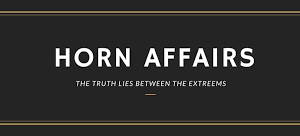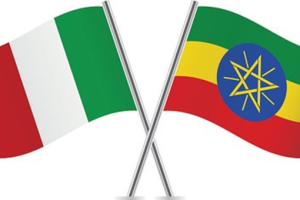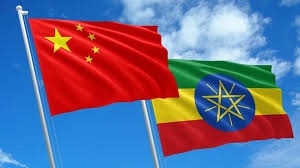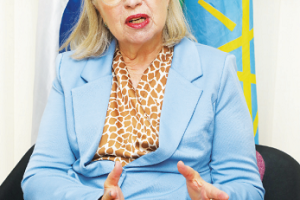
In an exclusive interview with The Ethiopian Herald, Dmitry Kiselev, the General Director of Rossiya Segodnya, sheds light on the recent inauguration of Sputnik’s first editorial center in Ethiopia. This new hub, which marks a significant milestone for the Russian media outlet, is the first to broadcast in the Amharic language. The grand opening ceremony, held in Addis Ababa, was a notable event attended by key figures such as Kiselev himself, Valentina Matviyenko, the Speaker of the Russian Federation Council, and Ethiopia’s House of Federation Speaker, Agegnehu Teshager.
This launch is a key development in the strengthening of Russian-Ethiopian relations, as well as the broader ties between Russia and the African continent. The new Sputnik office is designed to serve as a multifunctional editorial center, producing content in Amharic, including radio programs, digital platforms, and apps. It will also feature correspondent work with the African Union, reflecting the growing importance of information exchange in fostering a fair, multipolar world order that considers the interests of African nations. This move comes as part of Sputnik’s ongoing efforts to expand its presence across Africa, with radio broadcasts in English and French already reaching several African nations, including Nigeria, Botswana, and Cameroon.
Kiselev, a seasoned Russian TV presenter appointed by President Vladimir Putin to head Rossiya Segodnya, discusses the pivotal role that media cooperation plays in accelerating bilateral relations between Russia and Ethiopia. He also addresses how this new initiative is aligned with Russia’s broader strategy to deepen its diplomatic and cultural ties with African nations. In his conversation with The Ethiopian Herald, Kiselev emphasizes the significance of the media project in the context of Russia’s ongoing engagement with Ethiopia and its broader commitment to strengthening relations across Africa. We trust you will find this piece engaging and informative.
Sputnik has recently established a regional office in Addis Ababa, Ethiopia. Could you elaborate on the purpose of this office and how it will operate within the local media landscape?
We have just opened a representative office here in Addis Ababa, and I would like to emphasize that it will be much more than just a bureau. We will have a correspondent who reports on the situation in the region and works on our information tapes.
This correspondent will be there to report on developments in Ethiopia and will provide news for our agencies and news wires in Russian. However, this office will actually serve as an editorial hub with 10 to 12 local Ethiopian journalists who will be doing their journalistic work here in Addis Ababa. The idea is to fill the media space in Ethiopia with fair and honest information about what is happening in Russia and around the world, thereby balancing the Western mainstream media narrative and enhancing the information landscape within Ethiopia. Our goal is to work towards greater justice and impartiality in the media landscape.
What specific training programs or resources do you plan to implement in Ethiopia to support local journalists in developing their skills and enhancing their reporting capabilities??
We want to leverage all the capabilities we have to offer to our Ethiopian colleagues and support this effort to help transform the media landscape in Ethiopia. Our goal is to provide an alternative to the Western mainstream media and share unbiased and impartial information about Russia and the world. The idea is to serve as a counterweight to the Western mainstream media. In fact, this is the 25th hub of this kind that we are opening around the world, and we would like to share our experience and capabilities with Ethiopia as well.
On one hand, we aim to provide professional training for local journalists in modern journalism practices. On the other hand, we want to demonstrate our respect for Ethiopia’s national culture by working in the Amharic language. The idea is to share our expertise, offer professional training, and present the latest best practices to Ethiopian journalists within our agencies. Moreover, by opening this hub—being the first major Russian media outlet to operate in the Amharic language—we are showing our respect for Ethiopia and its cultural and linguistic heritage.
What significance does the historical context of both Ethiopia and Russia have in shaping your commitment to goodwill, transparency, and mutual respect in your partnership with Ethiopia?
There is a very important point I want to make regarding our relations with Ethiopia that creates a certain context for deepening our partnership. In fact, Ethiopia has never been a colonial country; it has never been colonized. Similarly, Russia has never been a colonial power and has never acted as a metropolitan power regarding its overseas holdings; it was never engaged in any kind of slave trade. This shared love for freedom and mutual respect for sovereignty and independence is something that brings our nations closer together and helps us forge stronger ties.
We are committed to working here in goodwill and transparency. Our doors—both those of our representative office and our agency—are always open to our colleagues. We would like to emphasize that we do not have any secret agenda behind this effort; we aim to work for the benefit of our country and for the benefit of Africa. Another important point I want to make is that this will be our first editorial hub in sub-Saharan Africa, specifically in non-Arab African countries.
We did have plans to expand our foothold on the African continent and to establish an even bigger presence, but Ethiopia was our priority and served as our first hub here. We were present with a very high-level delegation from Russia, headed by the Speaker of the Upper House of the Russian Parliament, Valentina Matvienko. We opened the representative office that evening, with her cutting the red ribbon alongside me.
She was the third highest-ranking government official in Russia, after the President and the Prime Minister, and the head of the upper chamber of the Senate. This demonstrated the support we had from the Russian government and the Russian state in our efforts.
What are the key challenges and plans for launching Amharic language services in the context of building a Russian-Ethiopian team?
First of all, the staff is, of course, our primary concern because we need to create a compatible Russian-Ethiopian team that can foster professional interaction. Human resources are the first challenge, as we must build a team of individuals, who can work together— Russians and Ethiopians—who can be on the same wavelength in their reporting activities. Today, we are launching our first Amharic language product, which will be a Telegram channel in Amharic.
The next stage will be to launch radio broadcasting in Amharic. We also have plans for Swahili and Hausa languages for Africa, and we aim to work in these languages as well. However, Amharic is our priority and the first African language we will work in.
In fact, working with the Amharic language and our Ethiopian colleagues will provide us with invaluable experience in building expertise and working in African languages, making it a significant first step in this direction.
I don’t know if you remember, but we had a radio station called Moscow Radio Overseas Broadcasting Service. I worked in the Norwegian editorial desk, conducting broadcasts in Norwegian. In fact, Moscow Radio was the world’s biggest radio station on short and medium waves, with over 300 hours of broadcasting in 72 languages per day, including Amharic. So, we are now essentially reviving these traditions of Moscow Radio.
What was your journey to becoming the director-general of the Russia Segodnya International News Agency?
Yes, I am currently the director-general, but at that time, I was just a junior editor. It was a significant moment for me when I was appointed by the president through a personal executive order, officially naming me the director-general of the Russia Segodnya International News Agency on December 9, 2013. Since 2012 I have been presenter of a news show on Russian State Television, and I am proud to say that I now lead it into its 13th season, making it the most popular news program in Russia. The show airs during prime time on Sunday evenings, and even as we continue to develop new content, I have transitioned
into my role as director-general of Russia Segodnya. Interestingly, the president himself was watching the show one evening and recognized my potential. He later invited me for a discussion, expressing his intention to appoint me as the head of the agency. Without prior consultation with anyone, he presented me with an executive order ready for my name and asked if I was prepared to accept the position. I must admit, it was quite unexpected.
On a different note, regarding our future plans for language services, in addition to Amharic, we are exploring the possibility of incorporating other local languages. As I mentioned earlier, we have intentions to expand into Swahili and Hausa. While our primary base will be in Ethiopia, we are also considering establishing small offices in Tanzania and South Africa. However, these plans are still in the early stages and require further development.
In what specific ways do you envision collaboration between Sputnik and The Ethiopian Herald to enhance new coverage in both countries?
Well, we have a practice of signing agreements with our colleagues in different countries. We could sign an agreement with The Ethiopian Herald for mutual professional support and information exchange. If there is interest from The Ethiopian Herald, I will ask my department to work on such an agreement. If they are interested in this kind of cooperation—exchanging our content, sharing our best practices—I can instruct our international department to draft the agreement so that we can work more closely together.
For us, this is very important because it would provide an additional source of information about Africa and the world. This would allow your perspective, and perhaps some facts you consider important, to be presented. We could then use them in all 32 languages in which we operate globally. This would give us access to the African perspective and your view on what’s happening in Africa and beyond, and allow us to share that perspective across the 32 languages we work in as an agency.
This would be an invaluable opportunity for us to build closer ties and be more effective in what we do. It aligns with our vision in Russia, where we aim to contribute to and promote a diverse and multi-polar world—where everyone can simply be themselves, without needing to conform to any particular framework. We are glad that you are the way you are.
What innovative uses of artificial intelligence and digital technology are being implemented in your agency, and how are they changing the way content is created and presented?
In fact, the Telegram channel is a digital platform, but we also use artificial intelligence in our work. It is a technology that can scan, collect, group information, and even write simple texts. Nowadays, it is estimated that one in ten texts or media pieces is written by artificial intelligence. Indeed, launching a Telegram channel is already engaging with this world of digital technology. But in addition to this, we actively use artificial intelligence in our agency, which is very useful for processing data and even editing simple texts. In fact, it is said that one in ten articles are now written by AI worldwide. These AI-generated articles are often perceived as written by ordinary people, but they speak in human voices, in various languages, and we utilize this technology. We do not hide this; it’s part of our practice. We don’t try to present AI as human, but rather as digital voices that can host shows and engage in discussions. This is another innovation we are using.
We work with a very popular independent thinker, political analyst, professor, and author of textbooks on geopolitics. With his permission, we digitized his image and signed an agreement with him. He writes texts from home, and we voice these texts using his voice, generated by artificial intelligence. His digital avatar appears on the screen, acting as a host. This process makes it easier for him since he doesn’t need to be physically present; there’s no need for filming or editing—everything happens remotely.
This way, he can write texts, send them to us, and his digital avatar presents the content without him needing to go to the studio, get makeup done, or read the text in person. We can also do this in 32 languages, using his voice and appearance. This is one of our experiments in the news agency, and we can apply the same method for someone who speaks Amharic. However, this is just one aspect of our potential collaboration.
How do you perceive the current relation between Ethiopia and Russia, and how can media cooperation contribute positively to this?
I think we have been talking for decades about the strong relations between Russia and Ethiopia, but there has been a lack of meaningful progress in these relations, and this is something we have been struggling with. Our trade volume is about 150 million dollars, which is not that much, so there is a need for us to redouble our efforts in promoting these relations. Considering that Ethiopia has a population of over 130 million people and Russia has about 150 million, this trade volume is very small for both countries. So, there are plans to develop these relations further.
In fact, I am here with a high-level delegation of Russian officials, including the Economic Development Minister and the Minister of Health of the Russian Federation, Mikhail Murashko. On our flight here, Minister Murashko shared plans to reopen the Russian hospital that was first established in 1898.
What can Ethiopia do to make this happen? For example, issuing a permit for the hospital to use Russian medications and treatments. Russia has many innovative pharmaceutical solutions and products that you won’t find in other countries. Allowing the opening of a Russian-run pharmacy at this hospital would be a major step. Even more so if Ethiopia grants market access for these treatments. This could create a strong business foundation for closer ties between the two countries, which would also be very beneficial for Russia.
There are also opportunities in agriculture, energy, military-technical cooperation, and nuclear collaboration. These are all areas where we can move forward, and they align with our traditional areas of expertise.
Lastly, any message you would like to convey?
This is my first time in Ethiopia, and I would like to share something with you that I didn’t expect to encounter. I’ve been truly impressed by the people here—they are warm, open, and incredibly welcoming. I’ve mentioned this to several people already. There’s a famous thinker who once said, ‘Beauty is the best letter of recommendation.’ The warmth and beauty of Ethiopia, both in its people and its culture, resonate deeply with me. I believe that being on the same aesthetic and emotional wavelength is an important foundation for building strong, lasting ties between our countries. This connection is something I truly value, and I look forward to seeing our relations grow.
Thank you so much.
Thank you very much
BY WAKUMAN KUDAMA
THE ETHIOPIAN HERALD TUESDAY 4 MARCH





